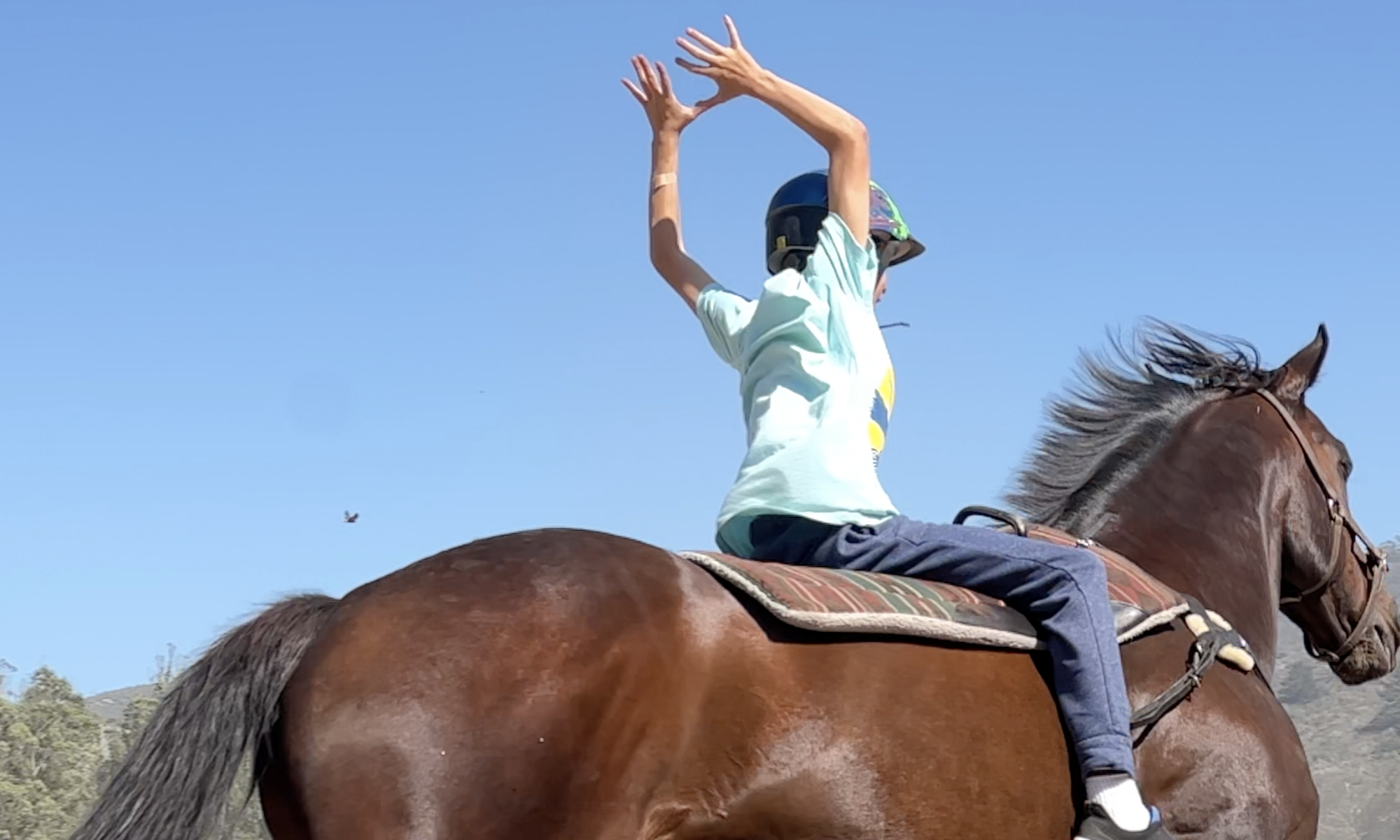When their neighbors started disappearing, there were a few minutes of panic, but then the food appeared again and the late summer rains kept the paddocks green and nutritious. And so they lounged and they ate in peace.
A trickle of unknown people came to visit them in their pasture. They were unaccustomed to much human contact, just the occasional farrier visits to trim their feet – which of late had become even more rare, and the twice annual vaccinations that stung like a small bee sting and then were forgotten. The people were kind and curious and inspected the horses from different angles. Photos were taken and then the people left.
One day, halters were put on and left on. The horses were taken from their lush paddocks and put into airy and clean concrete stalls with straw beds. Twice a day humans came in the stall and systematically touched them, petted them, they put their hands in places that had never been touched. The humans were firm but fair and they never stayed long.
One day, a group of humans came in the stall, the familiar bee sting clipped their throats and then things went fuzzy. When they awoke, there was a dull, consistent thudding ache under their bellies. They moped and recovered their appetites. They napped in the straw and wondered what all of the comings and goings outside their stall were.
A week later, they were coaxed out of their stalls into a wobbly trailer. They’d either never been in a trailer, or they had forgotten the feeling. Life was indeed strange and scary as they careened down the California freeways into a climate just a bit hotter and drier than any they had ever known.
In a matter of hours, they are charging around a sand arena together in the central valley sunshine with a shaggy dog and some chickens trailing behind. The ranch owner and his wife are filling a tub of water for them hoping that they will be relaxed enough to go into the “general population” irrigated field and then begin their training as saddle horses.
What the horses didn’t know, is how close they were to a trailer ride to the killer auction. In today’s economy, these horses had negative value. By a miracle of serendipity and a Herculean team effort, they have been given a chance at a life as saddle and performance horses.
Negative value? These horses were bred to run among the elite of west coast racing. Both have parentage traced back to the greats of the breed; Nasrullah, Bold Ruler and Seattle Slew. But they were abandoned by an owner either no longer interested in their lives or simply financially unable or unwilling to continue to pay for their care. The farm owner fed them from his own pocket, the new owners of the farm had the grace to let them stay at his farm while they recovered from castration surgery. A philanthropic angel agreed to pay for the surgery and a team of three veterinarians made the surgeries a priority. A fine horseman of the old school agreed to take them, provided that the castration and the transportation were included He required no registration papers, just their vaccination history to show that they were protected against virus’ that could affect his healthy herd.
People new to the rescue world talk about the thrill of the rescue. For the 350 mile round trip I made yesterday with two un-broke, freshly castrated Thoroughbred colts in the trailer, I bounced back and forth between regret that I don’t even remember what that rush may feel like and the satisfaction of knowing that I’d orchestrated a team to give two souls a chance at life. I also had a good dose of wondering how I’d pay the bills for our in-house herd of previously homeless critters while I took a day off from the ranch especially after filling the diesel fuel tank twice in a day.
While the work might be unglamorous, it puts me in cahoots with the vet that I most I most respect in the world, racehorse owners and ranch managers who truly care about the animals and great horsemen of the best old school. Along for the entire ride was a special teenager who was learning what people will do for horses, not to be heroes, but simply because it’s the right thing to do.
Unbroke, un-castrated and sans papers, these are the kinds of horses that are the most difficult to place and yet, through networks and teamwork, it’s exactly what we did.
Thank you to all who participated, from the bottom of my heart.


Wonderful entry, Joell! Would love to meet these two lucky babies soon. You’re awesome!
Nice Work!! Congrats!!! and Thank You!!
:)
Even animals need humane treatment. It does not mean that they have outgrown their use that they would just be thrown away like worthless rags.
Congratulations on your efforts. We need more people who will take care of these poor animals.